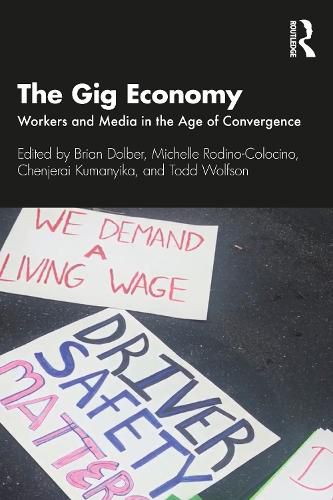Readings Newsletter
Become a Readings Member to make your shopping experience even easier.
Sign in or sign up for free!
You’re not far away from qualifying for FREE standard shipping within Australia
You’ve qualified for FREE standard shipping within Australia
The cart is loading…






This edited collection examines the gig economy in the age of convergence from a critical political economic perspective. Contributions explore how media, technology, and labor are converging to create new modes of production, as well as new modes of resistance.
From rideshare drivers in Los Angeles to domestic workers in Delhi, from sex work to podcasting, this book draws together research that examines the gig economy’s exploitation of workers and their resistance. Employing critical theoretical perspectives and methodologies in a variety of national contexts, contributors consider the roles that media, policy, culture, and history, as well as gender, race, and ethnicity play in forging working conditions in the ‘gig economy’. Contributors examine the complex and historical relationships between media and gig work integral to capitalism with the aim of exposing and, ultimately, ending exploitation.
This book will appeal to students and scholars examining questions of technology, media, and labor across media and communication studies, information studies, and labor studies as well as activists, journalists, and policymakers.
$9.00 standard shipping within Australia
FREE standard shipping within Australia for orders over $100.00
Express & International shipping calculated at checkout
This edited collection examines the gig economy in the age of convergence from a critical political economic perspective. Contributions explore how media, technology, and labor are converging to create new modes of production, as well as new modes of resistance.
From rideshare drivers in Los Angeles to domestic workers in Delhi, from sex work to podcasting, this book draws together research that examines the gig economy’s exploitation of workers and their resistance. Employing critical theoretical perspectives and methodologies in a variety of national contexts, contributors consider the roles that media, policy, culture, and history, as well as gender, race, and ethnicity play in forging working conditions in the ‘gig economy’. Contributors examine the complex and historical relationships between media and gig work integral to capitalism with the aim of exposing and, ultimately, ending exploitation.
This book will appeal to students and scholars examining questions of technology, media, and labor across media and communication studies, information studies, and labor studies as well as activists, journalists, and policymakers.